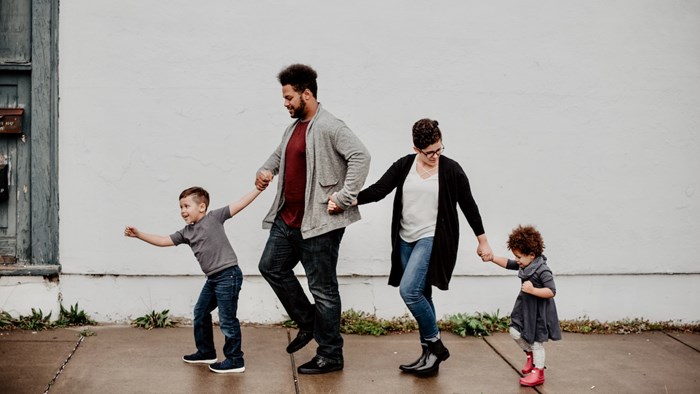Orienting Our Hearts and Minds for Effective Foster Care

It’s been one year since a precocious 8-year-old with a pile of blond hair, freckles and massive dimples (we once explored if a mini-marshmallow could fit inside—not quite) came to stay at our house.
Most often, we call him J. He also answers to Baby Thor, El Tornádo and Sweets. We are hopeful but unsure of his future, and thankful that God is forging us together through foster care.
Christians believe that God designed humans to live in families that are lovingly devoted to one another. Often, our families are found between this truth and our realities.
And families aren’t monolithic. As David Brooks wrote, nuclear families in the U.S. represent a privileged minority, with the norm now being a variety of “forged families,” people who come together to survive, often through tragedy or trauma.
With 391,000 children in the U.S. foster care system, Christian foster parents and church-based foster support ministries are stepping into the thick of this reality. It’s fitting. Ethicist Andrew Walker argues that the concept of a forged family “can already be found in an institution so familiar to us that its routineness can make us blind to its offerings: the local church.”
Jamie Kaeb at The Forgotten Initiative encourages families and churches to get involved. She argues that, with 300,000 churches in the U.S., if two families from every church would become foster parents, there would be enough homes for every foster child. Meanwhile there are important critiques to both foster care parenting and faith-based organizations’ role.
Foster care can be an exposure to what is beautiful and broken in the world. Also, unlike international ministries, it’s geographically proximate, or part of our own neighborhoods and cities. Thus it can expose conditions of our own hearts and minds in ways that tidier ministries do not. As you consider being a part of foster care as a parent or support ministry, it’s helpful to developing postures, or orientations of the heart and mind.
Here are a few that are important to me:
Helping With An Ecologies Approach
Ecologies are diverse biological systems where each organism helps both itself and others flourish. Foster care works best when it exists in a network of support, a dense and life-giving web of interdependence encompassing legal, social, educational, physical/medical, mental/emotional, and spiritual aspects of a family’s life. For example, currently we receive help from twelve professionals representing six organizations, who also collaborate with one another.
-
Foster Parents: if you are accustomed to being the helpers, not the helpees, this can be a growth area. Don’t be surprised if it feels unnatural at first.
-
Ministry leaders: what if your foster care efforts began with a listening tour and research to map out the different assets for your foster care community? Then you could prayerfully seek how to become one nourishing part of the community’s existing ecology.
Caring [While] Seeking Understanding
I encourage you to understand yourself and the stories of those you are helping ever more deeply. There are heroes and villains in foster care, to be sure, but most of us are somewhere in between. Your posture in this area has the potential to help your children heal or re-traumatize them. Similar to how we explore matters of faith from a posture of “‘faith seeking understanding,” let’s pursue foster care with a posture of “care seeking understanding.”
Hallmarks of a healthy desire to understand are:
- Charitably and critically considering a variety of perspectives and resources.
- Listening to someone completely before forming a response.
- Becoming aware of how you tell the story of your child or your ministry. Would you tell the story the same way if the people you are talking about were in the room or on the text thread?
- Habits of prayer when we carefully reflect on a memory and how it made us feel about a person or event. Then we ask God to inhabit our minds, filling us with His wisdom and love.
Unblocking Trust
Until a few years ago, I would pass out at the sight of blood or too much medical talk. My mom, husband, and others learned to read the signs, and would try to get me to a safe place to let the stress work itself out in my body. It wasn’t that I was acting out on purpose, it was that my amygdala had taken control of my brain. Similarly, children who have experienced trauma may act out because their brains’ stress centers are taking over.
At the core of what children need in the foster care system is a community of people who merit deep trust. Life has taught them that trustworthiness isn’t probable, and so their bodies overprotect them in the presence of a real or perceived threat. Adults in charge can help by responding to these acts in trauma-informed ways. I recommend Trust-Based Relational Interventions for those who are on the front lines of care and in support roles.
This posture is not about permissivity. Rather, it is a method of teaching children and youth to build trust with adults who provide wise care and demonstrate sacrificial authority. Trauma-informed care is one thing to understand, but it’s another matter to train oneself to respond well consistently.
While the journey we’re on is not easy, it is worth it. As God continues to forge our family through foster care, we are grateful He’s allowing us to be part of J’s story.
Jamie Goodwin, Assistant Professor of Humanitarian and Disaster Leadership at the Humanitarian Disaster Institute, earned a Doctor of Philosophy Philanthropic Studies from the Indiana University Lilly Family School of Philanthropy. Her research focuses on international philanthropy and civil society, with a focus on faith-based organizations and immigrant groups.
The Better Samaritan is a part of CT's
Blog Forum. Support the work of CT.
Subscribe and get one year free.
The views of the blogger do not necessarily reflect those of Christianity Today.





















